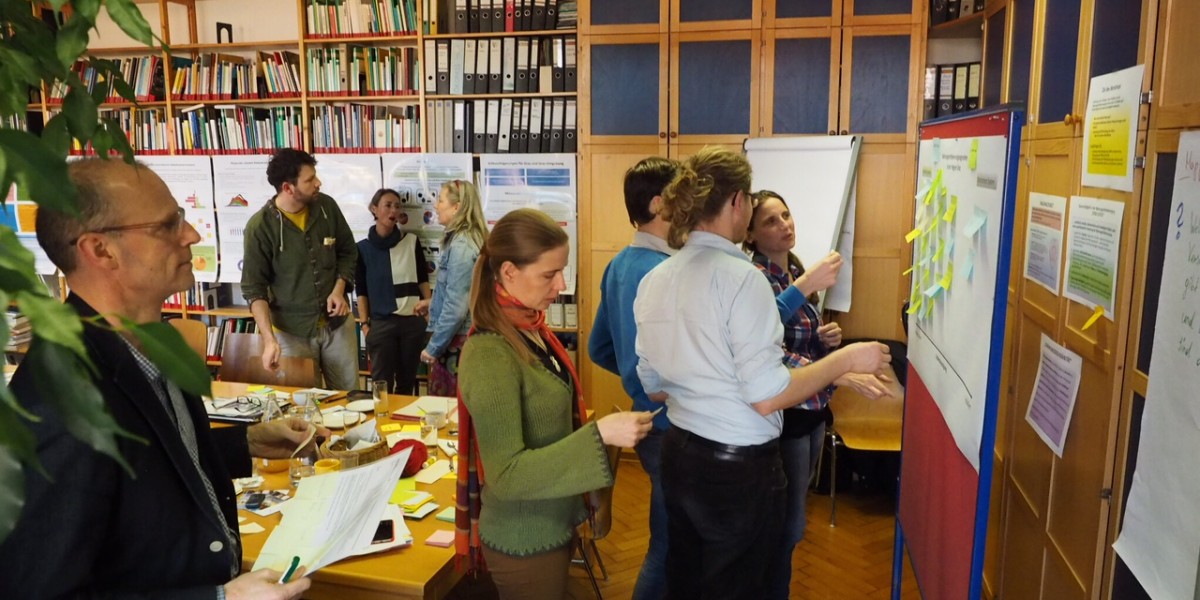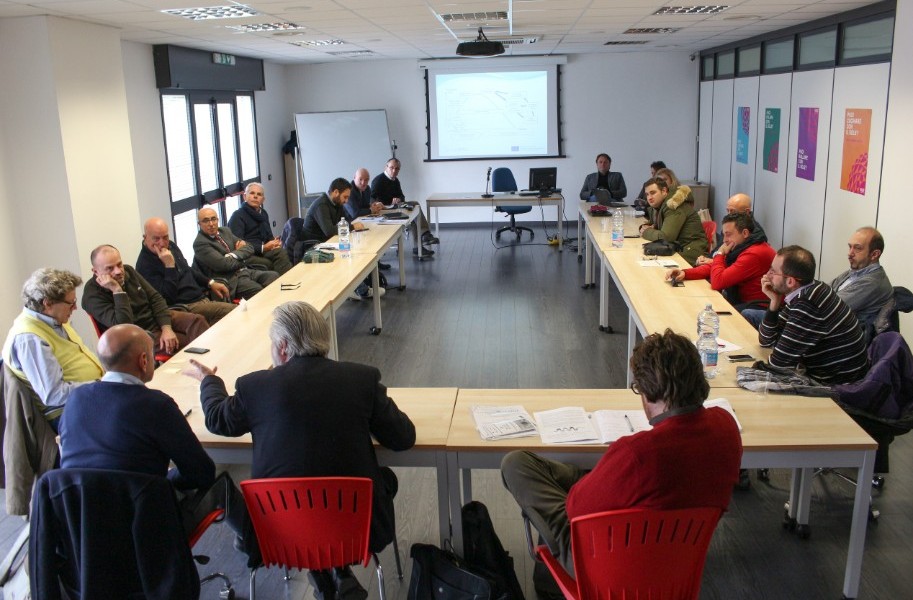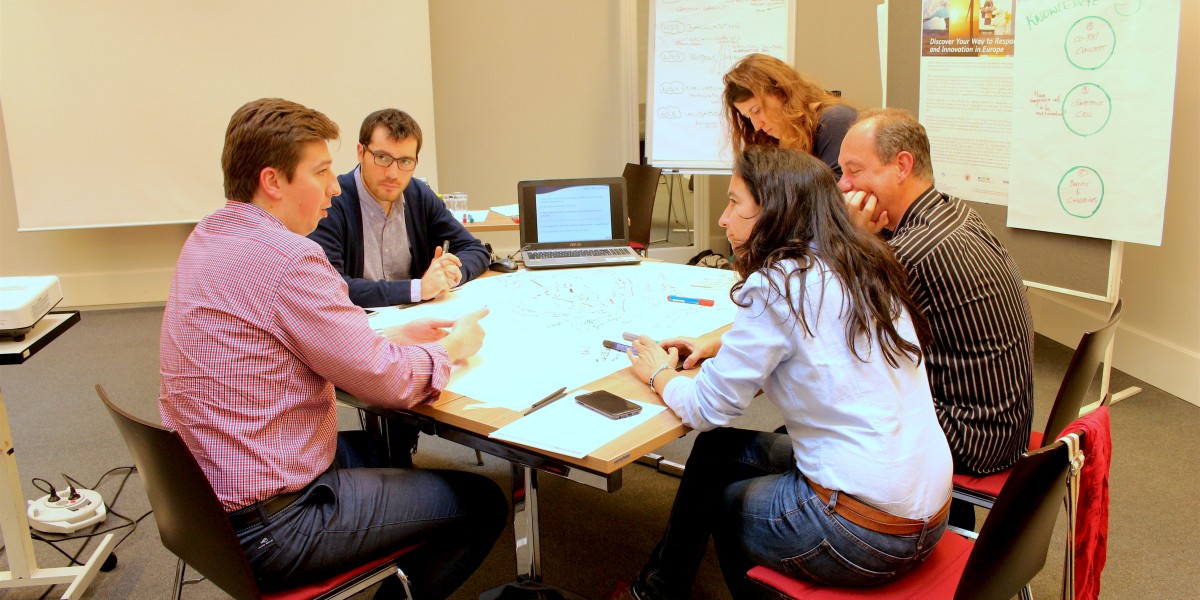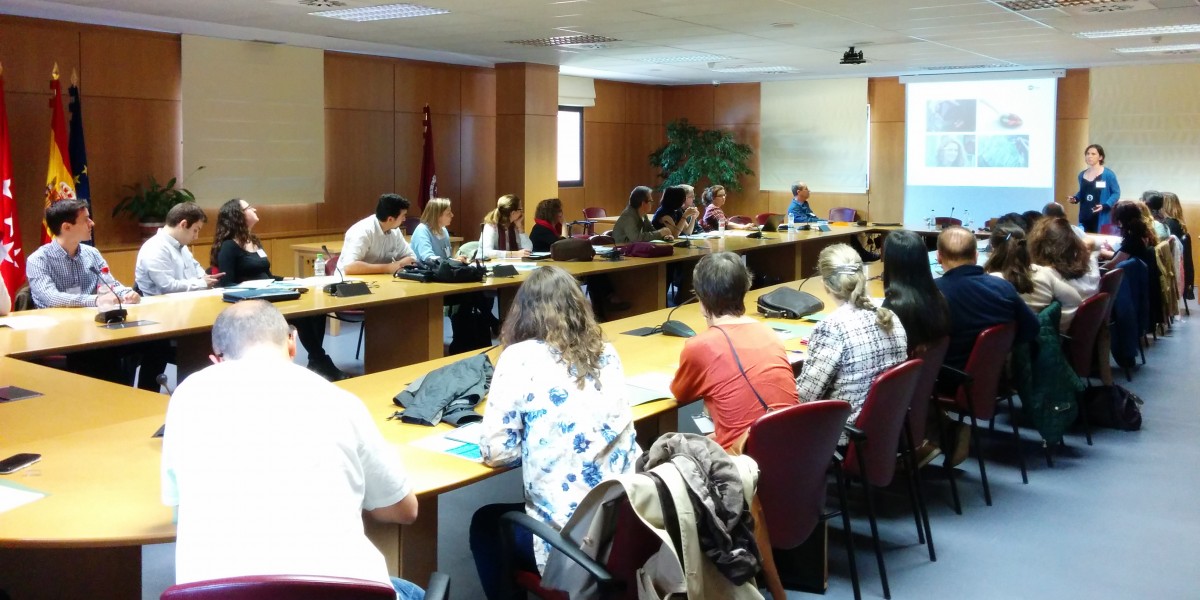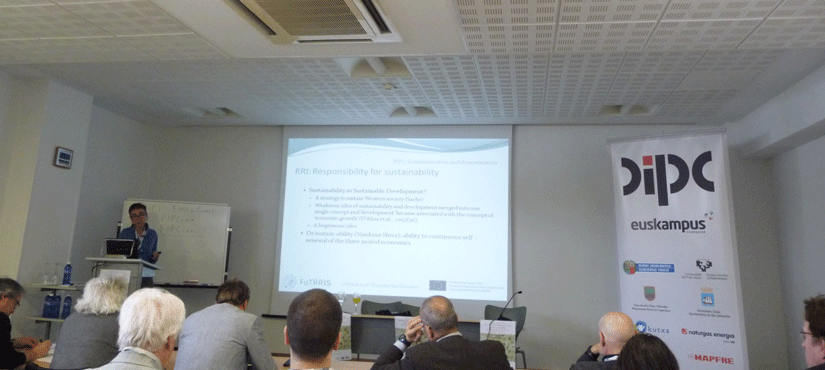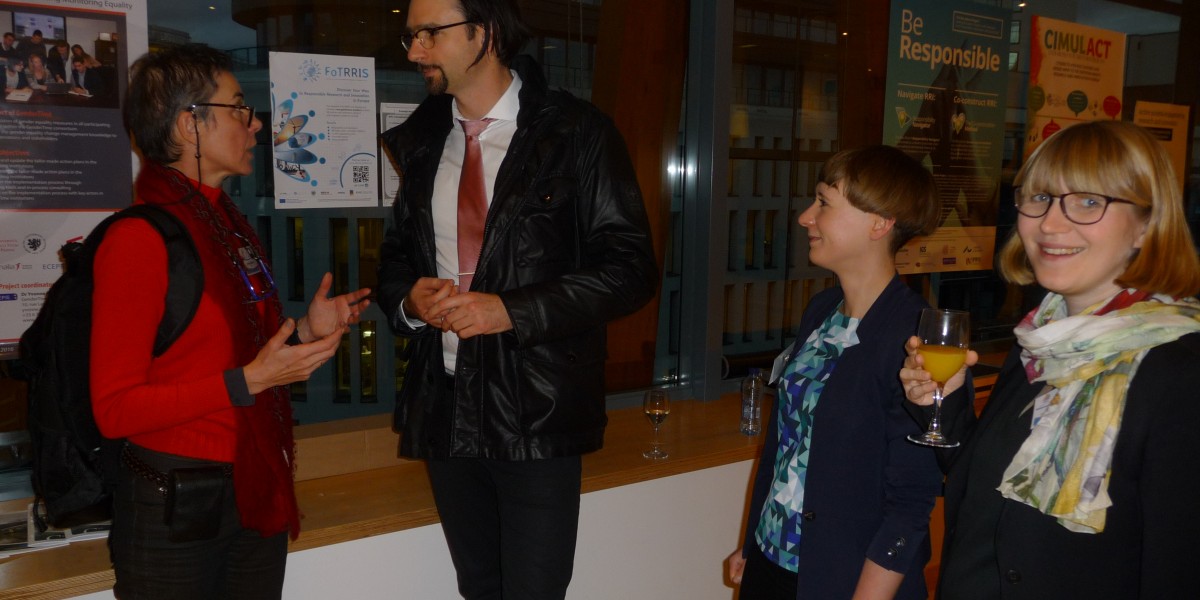Admin
RRI towards a different kind of growth
Listen to RRI being presented as a key element of the transition to a different kind of growth! FoTRRIS’ partner Anne Snick discusses (2:02:22) how the EU should take the lead on defining RRI as the integration of technical, social, economic and governance design innovation at the event ‘A different kind of growth: Europe taking the lead?’. However, since R&I has
Launch of the Austrian Transition Experiment
The Austrian FoTRRIS team launched on 15 February a series of workshops at IFZ (www.ifz.at), where committed stakeholders from policy, farms, research, and alternative food scenes work together to create a more sustainable and socially-just food system in the area of Graz. Sandra Karner, Anita Thaler and Magdalena Wicher organises and moderates these workshops in the framework of the FoTRRIS transition
Systems mapping workshop
On 13 January 2017 the Sicilian FoTRRIS Competence Cell launched a series of workshops with local communities and policy makers of the Madonie region.The first workshop was held at ARCA University Business Incubator in Palermo. The location itself represents a hub of innovation and entrepreneurship supporting research results transfer, scientific knowledge exploitation for the benefit of local communities, new business models and
Definitions of RRI debated during EWI-focus on Responsible Research and Innovation (RRI)”event
On 6th of September 2016 the FoTRRIS project and its concept was presented in Brussels for a wide range of stakeholders (academia, business, public services and civil society organisations) during the EWI-focus 22 event “Responsible Research and Innovation (RRI)” co-organised by the Flemish Department of Economy, Science and Innovation (EWI), the Royal Flemish Academy of Belgium for Science and the
Can RRI do the trick?
PRESS RELEASE The EuroScience Open Forum (ESOF) was hosted this year by Manchester (UK), from 24 to 27 July 2016. One of the five main topics was RRI[1]. This press release presents a rapid overview of ESOF and more specifically the outcomes of one session which featured six EU-funded RRI projects. ProGRreSS (PROmoting Global REsponsible research and Social and Scientific Innovation), Responsibility (Global
FoTRRIS: on the way to Responsible Research and Innovation through transitional experiments
The second consortium meeting of the FoTRRIS project was held from 11-13 May 2016, after summarising the results received from more than 60 in-depth interviews on responsible research and innovations in the EU and initiating discussions on the implementation of transitional experiments in Austria, Belgium, Spain, Italy and Hungary. Transitional experiments will test and validate the FoTRRIS concepts and collaborative tools for collaborative
FoTRRIS presented at ‘II RRI Tools Madrid Symposium’
On 30 May 2016, the II RRI Tools Madrid Symposium was held at the Faculty of Computer Sciences (Complutense University of Madrid). RRI Tools is a research project funded by the European Commission in which RRI is seen as a concept that gathers all R&D actors and covers three key dimensions: results, processes and legislative aspects. After some communications related
FoTRRIS at RRI Conference: RRI the problematic Quest for “Right” impacts
Marian Deblonde, FoTRRIS Project Coordinator, was invited on behalf of Dave Guston (Arizona State University), Andoni Ibarra (University of the Basque Country UPV/EHU) and Andoni Eizagirre (Mondragon University) to the conference Responsible Research and Innovation – RRI the Problematic Quest for “Right” Impacts, held in Donostia, San Sebastian (Basque Country – Spain) from 10-11 March 2016. This event was co-organised by the Sánchez-Mazas Chair (UPV/EHU)
Responsible research and innovation: building knowledge arenas for glocal sustainability research
Article authored by FoTRRIS Coordinator, Marian Deblonde ABSTRACT “In knowledge economies, the prevailing belief is that research and innovation are crucial for societal progress. The call for ‘responsible’ research and innovation is, however, an indication that the link between science and technology on the one hand and societal progress on the other is less unequivocal than many would like to think. This article wonders
FoTRRIS attends Go4 final conference
Both Zoltan Bajmocy from ESSRG (Hungary) and Marian Deblonde from VITO (Belgium) attended the conference “RRI Shaping new Horizons: Responsible Research and Innovation in Europe and across the World,” which was held on 14 and 15 January 2016 in Brussels. The Go4 final conference presented key results of the 4 EU-funded FP7 projects: GREAT, Res-AGorA, ProGReSS and Responsibility. Marian Deblonde gives


